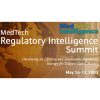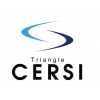Regulatory teams participate in every step of bringing a medical device or drug to market. Because of the essential role they play, these teams need advanced tools to keep pace with the latest regulatory bodies and standards. Legacy technology that siloes data across different pillars isn’t the answer.
Instead, organizations should use a single source of truth solution that allows teams to operate at peak efficiency in each R&D phase. Easy access to data assists regulatory teams as they face more challenges than ever before, including:
- Limited real-time visibility to data
- Technical complexities
- Continual regulatory changes
The pandemic changed public perception of pharmaceuticals. Because LifeSciences brought COVID-19 treatments to market with incredible speed, the public now expects a shortened time between design, testing, and launch for all products. While the LifeSciences industry cannot cut corners, they can work smarter and more efficiently.
The FDA approves only about 12% of all drugs in clinical trials. A compliant and well-documented process increases the FDA’s likelihood of approving a drug or medical device—and doing so more quickly.
Organizations planning to update their processes should consider the benefits regulatory teams gain by using a single source of truth as they navigate the entire R&D process.
Finding the Correct Documentation
Regulatory teams must search for essential information, validate data and document accuracy. By storing data in a central location, teams can pull what they need right from the authoritative source. They no longer need to rely on pre-existing narrative documents or dossiers, which can miss key figures or contain outdated information.
A single source of truth also helps teams translate pre-written reports into formats governing agencies require. For example, workers can easily format unstructured data into region-specific requirements, such as the Identification of Medicinal Products (IDMP) standard.
Preparing Robust Submissions
A single source of truth removes the need for regulatory teams to do all the heavy lifting to check data quality manually. Removing tedious and inefficient processes frees up valuable time and resources, enabling teams to focus on critical thinking tasks. Automating processes also decreases the chance of human error.
The deeper insights provided by a single source of truth help teams pinpoint and address gaps in data collection during each trial phase. By mitigating potential risks earlier in the process before submitting findings, teams generate more robust evidence and, ultimately, stronger submissions.
Such submissions tend to require fewer changes, which often means a shorter approval process. A single source of truth consistently updates submissions with the latest regulatory compliance standards throughout the R&D lifecycle and reduces the likelihood of increased scrutiny or red flags.
Real-time supervision
A single source of truth facilitates more effective communication between regulatory and clinical teams throughout the R&D process. Real-time communication eliminates constant uploads and downloads. More accessible data also enables greater regulatory compliance capabilities through artificial intelligence (AI), allowing regulatory teams to quickly identify delays and conduct a root cause analysis (RCA).
Safety and medical affairs teams also benefit from working from a single source of truth. A central regulatory database automates the MedDRA coding of clinical particulars for safety case reporting. Medical affairs teams can access approved product and submission information from the same databases that enable insight.
Connected systems provide a unified truth across every phase of development. Companies using legacy systems can’t afford to lose data and knowledge within individual silos, which delays approvals. From providing the necessary framework for safety reports to facilitating clinical team compliance, regulatory teams benefit from a single source of truth solution.







